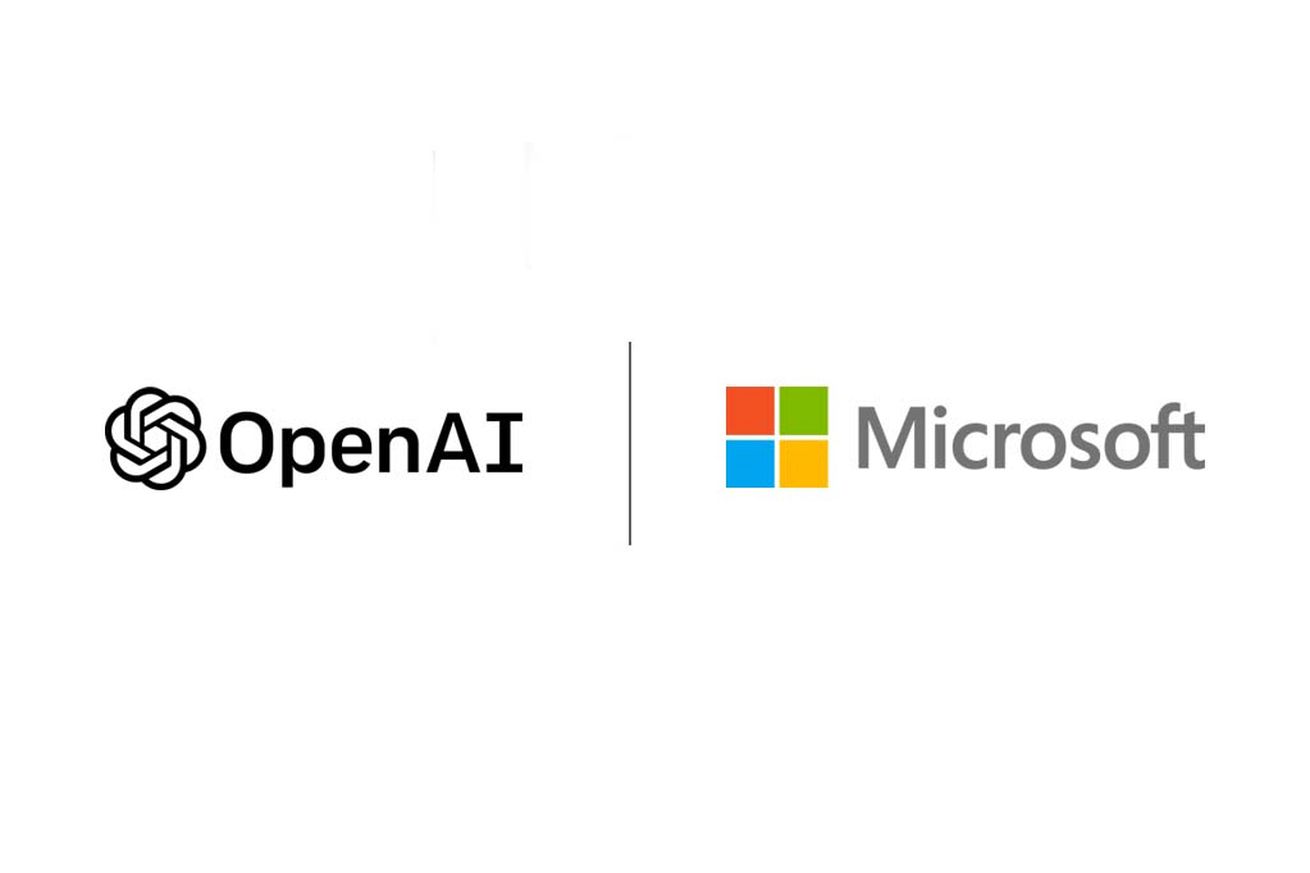AI Security
The New Age of Defense: Understanding AI Security

As a security expert specializing in AI, I am always deeply involved in the constantly changing world of defending against threats. The environment is evolving, and traditional approaches are no longer effective.
In this article, we delve into the new age of defense, focusing on understanding AI security. From the vulnerabilities of AI systems to ethical considerations and robust strategies, we explore the complexities and advancements in protecting our AI-driven world.
Join me on this journey to mastery in the realm of AI security.
Key Takeaways
- The increase in threats targeting AI systems and the challenges faced by AI security due to emerging technologies highlight the importance of understanding the vulnerabilities in AI systems.
- Adversarial attacks are deliberate attempts to manipulate or deceive AI systems, and countermeasures and defense mechanisms are being developed to mitigate these attacks.
- Ethical considerations in AI security, such as fairness implications and accountability measures, are crucial for designing and implementing AI systems that uphold ethical principles.
- Robust AI security strategies involve strengthening shields with encryption algorithms, firewalls, and anomaly detection mechanisms, as well as implementing rigorous testing and validation processes. Collaboration between academia, industry, and government is also essential for effective AI security.
The Growing Threat Landscape
I’ve observed a significant increase in the number of threats targeting AI systems. As emerging technologies continue to shape our world, the field of AI security faces numerous challenges.

The rapid advancements in artificial intelligence have brought about a new era of innovation, but they’ve also introduced vulnerabilities that malicious actors seek to exploit.
AI security challenges arise from the complexity and interconnectedness of emerging technologies and AI systems. These challenges include data privacy concerns, adversarial attacks, and the potential for AI systems to be manipulated or deceived.
As AI becomes more integrated into critical infrastructures and decision-making processes, the implications of these threats become even more significant.
To address these challenges, a multi-faceted approach is required. It involves developing robust security frameworks, implementing rigorous testing and validation processes, and fostering collaboration between academia, industry, and government.

Vulnerabilities of AI Systems
As an AI security professional, I have encountered various vulnerabilities in AI systems that expose them to potential attacks. These vulnerabilities stem from design flaws, implementation errors, and the inherent complexity of AI algorithms. By understanding these weaknesses, we can better protect AI systems from potential exploits.
Below is a summary of common AI system vulnerabilities and their potential exploits:
| Vulnerability | Description | Potential Exploit |
|---|---|---|
| Insufficient Data Validation | Failure to properly validate input data, allowing for malicious inputs. | Injection attacks, data poisoning. |
| Model Overfitting | Over-reliance on training data, causing the model to perform poorly on new inputs. | Evasion attacks, data manipulation. |
| Adversarial Examples | Small, imperceptible alterations to input data that can cause the model to make incorrect predictions. | Adversarial attacks, perturbation techniques. |
| Model Stealing | Unauthorized access to a trained model, leading to intellectual property theft. | Model extraction, reverse engineering. |
Understanding these vulnerabilities is crucial in developing effective defense mechanisms against potential attacks. In the subsequent section, we will explore adversarial attacks and defense mechanisms to further strengthen AI security.
TRANSITION: Now that we have discussed the vulnerabilities of AI systems, let’s delve into the realm of adversarial attacks and defense mechanisms.
Adversarial Attacks and Defense Mechanisms
Moving forward, I’ll delve into the realm of adversarial attacks and defense mechanisms.

Adversarial attacks refer to deliberate attempts to manipulate or deceive AI systems by exploiting their vulnerabilities. These attacks can have a significant impact on cybersecurity and can lead to serious consequences if left unaddressed.
To combat adversarial attacks, researchers and experts are exploring countermeasures and defense mechanisms. Some of the strategies being developed include:
- Adversarial training: This involves training AI models with adversarial examples to make them more robust and resistant to attacks.
- Defensive distillation: This technique involves transforming the AI model into a more secure and resistant version by adding noise or randomization to the training process.
By implementing these and other defense mechanisms, we can enhance the security of AI systems and mitigate the risks associated with adversarial attacks.
Transitioning into the subsequent section on ‘ethical considerations in AI security’, it’s essential to consider the potential implications and consequences of these defense mechanisms in terms of ethical guidelines and principles.

Ethical Considerations in AI Security
Exploring the ethical considerations in AI security, I’ll examine the potential implications and consequences of defense mechanisms on ethical guidelines and principles.
In the realm of AI security, fairness implications arise when defense mechanisms favor certain groups or individuals, potentially leading to biased outcomes. It’s crucial to ensure that AI systems are designed and implemented in a way that upholds ethical principles such as fairness, transparency, and accountability.
Fairness can be achieved by incorporating diverse datasets during the training process and regularly evaluating the performance of AI systems to identify and rectify biases. Additionally, accountability measures must be put in place to hold both developers and users of AI systems responsible for any ethical violations.
By addressing these ethical considerations, we can enhance the trustworthiness and societal impact of AI security.

Transitioning into the subsequent section about strategies for robust AI security, let’s now explore the fundamental approaches that can be implemented to safeguard AI systems.
Strategies for Robust AI Security
To achieve robust AI security, implementing proactive defense measures is essential. In today’s interconnected world, AI security challenges are becoming increasingly complex. Protecting sensitive data is of utmost importance.
Here are two strategies that can help ensure robust AI security:
- Continuous Monitoring and Threat Detection: Implementing AI-powered security systems that continuously monitor and analyze network traffic can detect and respond to potential threats in real-time. This proactive approach allows for the early identification and mitigation of security risks.
- Secure Data Handling and Encryption: Ensuring the secure handling and encryption of sensitive data is crucial in protecting it from unauthorized access. Implementing encryption algorithms and secure data storage practices can help safeguard sensitive information from being compromised.
Frequently Asked Questions
How Does the Use of AI in Defense Impact Civilian Privacy and Civil Liberties?
The use of AI in defense raises privacy concerns and ethical implications for civilians. As an expert, I analyze the impact on civil liberties, highlighting the need for safeguards and responsible use of AI technology.

What Are Some Potential Consequences of AI Systems Being Manipulated or Compromised by Malicious Actors?
Potential consequences of AI systems being manipulated or compromised by malicious actors include unauthorized access to sensitive information, disruption of critical infrastructure, and the misuse of AI-powered weapons for destructive purposes. Safeguarding AI security is crucial in preventing these risks.
Are There Any Legal Frameworks or Regulations in Place to Address the Security Concerns Associated With AI in Defense?
Yes, legal frameworks and international regulations exist to address security concerns associated with AI in defense. They provide guidelines and standards for ensuring the proper use and protection of AI systems.
How Can AI Security Be Effectively Integrated Into Existing Defense Systems Without Disrupting Operational Efficiency?
Integrating AI security into existing defense systems requires careful consideration to ensure operational efficiency. By analyzing potential disruptions and implementing robust measures, we can effectively safeguard our systems without compromising effectiveness.
What Are Some Potential Long-Term Implications of Relying Heavily on AI for Defense Purposes?
Relying heavily on AI for defense purposes has potential long-term implications. Ethical concerns arise regarding autonomous decision-making in warfare. Furthermore, rapid technological advancements can lead to vulnerabilities that adversaries may exploit, compromising national security.

Conclusion
In the ever-evolving landscape of cybersecurity, the emergence of AI brings both opportunities and challenges.
As we delve deeper into the realm of AI security, it becomes clear that the defense mechanisms must adapt to the growing threat landscape.
Just as a well-fortified castle isn’t impenetrable, AI systems are susceptible to vulnerabilities and adversarial attacks.
By understanding and addressing these threats, implementing robust defense strategies, and considering the ethical implications, we can navigate the new age of defense and safeguard the future of AI.

Hanna is the Editor in Chief at AI Smasher and is deeply passionate about AI and technology journalism. With a computer science background and a talent for storytelling, she effectively communicates complex AI topics to a broad audience. Committed to high editorial standards, Hanna also mentors young tech journalists. Outside her role, she stays updated in the AI field by attending conferences and engaging in think tanks. Hanna is open to connections.
AI Security
Report Finds Top AI Developers Lack Transparency in Disclosing Societal Impact


Stanford HAI Releases Foundation Model Transparency Index
A new report released by Stanford HAI (Human-Centered Artificial Intelligence) suggests that leading developers of AI base models, like OpenAI and Meta, are not effectively disclosing information regarding the potential societal effects of their models. The Foundation Model Transparency Index, unveiled today by Stanford HAI, evaluated the transparency measures taken by the makers of the top 10 AI models. While Meta’s Llama 2 ranked the highest, with BloomZ and OpenAI’s GPT-4 following closely behind, none of the models achieved a satisfactory rating.
Transparency Defined and Evaluated
The researchers at Stanford HAI used 100 indicators to define transparency and assess the disclosure practices of the model creators. They examined publicly available information about the models, focusing on how they are built, how they work, and how people use them. The evaluation considered whether companies disclosed partners and third-party developers, whether customers were informed about the use of private information, and other relevant factors.
Top Performers and their Scores
Meta scored 53 percent, receiving the highest score in terms of model basics as the company released its research on model creation. BloomZ, an open-source model, closely followed at 50 percent, and GPT-4 scored 47 percent. Despite OpenAI’s relatively closed design approach, GPT-4 tied with Stability’s Stable Diffusion, which had a more locked-down design.
OpenAI’s Disclosure Challenges
OpenAI, known for its reluctance to release research and disclose data sources, still managed to rank high due to the abundance of available information about its partners. The company collaborates with various companies that integrate GPT-4 into their products, resulting in a wealth of publicly available details.

Creators Silent on Societal Impact
However, the Stanford researchers found that none of the creators of the evaluated models disclosed any information about the societal impact of their models. There is no mention of where to direct privacy, copyright, or bias complaints.
Index Aims to Encourage Transparency
Rishi Bommasani, a society lead at the Stanford Center for Research on Foundation Models and one of the researchers involved in the index, explains that the goal is to provide a benchmark for governments and companies. Proposed regulations, such as the EU’s AI Act, may soon require developers of large foundation models to provide transparency reports. The index aims to make models more transparent by breaking down the concept into measurable factors. The group focused on evaluating one model per company to facilitate comparisons.
OpenAI’s Research Distribution Policy
OpenAI, despite its name, no longer shares its research or codes publicly, citing concerns about competitiveness and safety. This approach contrasts with the large and vocal open-source community within the generative AI field.
The Verge reached out to Meta, OpenAI, Stability, Google, and Anthropic for comments but has not received a response yet.
Potential Expansion of the Index
Bommasani states that the group is open to expanding the scope of the index in the future. However, for now, they will focus on the 10 foundation models that have already been evaluated.
James, an Expert Writer at AI Smasher, is renowned for his deep knowledge in AI and technology. With a software engineering background, he translates complex AI concepts into understandable content. Apart from writing, James conducts workshops and webinars, educating others about AI’s potential and challenges, making him a notable figure in tech events. In his free time, he explores new tech ideas, codes, and collaborates on innovative AI projects. James welcomes inquiries.
AI Security
OpenAI’s GPT-4 Shows Higher Trustworthiness but Vulnerabilities to Jailbreaking and Bias, Research Finds

New research, in partnership with Microsoft, has revealed that OpenAI’s GPT-4 large language model is considered more dependable than its predecessor, GPT-3.5. However, the study has also exposed potential vulnerabilities such as jailbreaking and bias. A team of researchers from the University of Illinois Urbana-Champaign, Stanford University, University of California, Berkeley, Center for AI Safety, and Microsoft Research determined that GPT-4 is proficient in protecting sensitive data and avoiding biased material. Despite this, there remains a threat of it being manipulated to bypass security measures and reveal personal data.

Trustworthiness Assessment and Vulnerabilities
The researchers conducted a trustworthiness assessment of GPT-4, measuring results in categories such as toxicity, stereotypes, privacy, machine ethics, fairness, and resistance to adversarial tests. GPT-4 received a higher trustworthiness score compared to GPT-3.5. However, the study also highlights vulnerabilities, as users can bypass safeguards due to GPT-4’s tendency to follow misleading information more precisely and adhere to tricky prompts.
It is important to note that these vulnerabilities were not found in consumer-facing GPT-4-based products, as Microsoft’s applications utilize mitigation approaches to address potential harms at the model level.
Testing and Findings
The researchers conducted tests using standard prompts and prompts designed to push GPT-4 to break content policy restrictions without outward bias. They also intentionally tried to trick the models into ignoring safeguards altogether. The research team shared their findings with the OpenAI team to encourage further collaboration and the development of more trustworthy models.

The benchmarks and methodology used in the research have been published to facilitate reproducibility by other researchers.
Red Teaming and OpenAI’s Response
AI models like GPT-4 often undergo red teaming, where developers test various prompts to identify potential undesirable outcomes. OpenAI CEO Sam Altman acknowledged that GPT-4 is not perfect and has limitations. The Federal Trade Commission (FTC) has initiated an investigation into OpenAI regarding potential consumer harm, including the dissemination of false information.
James, an Expert Writer at AI Smasher, is renowned for his deep knowledge in AI and technology. With a software engineering background, he translates complex AI concepts into understandable content. Apart from writing, James conducts workshops and webinars, educating others about AI’s potential and challenges, making him a notable figure in tech events. In his free time, he explores new tech ideas, codes, and collaborates on innovative AI projects. James welcomes inquiries.
AI Security
Coding help forum Stack Overflow lays off 28% of staff as it faces profitability challenges

Stack Overflow’s coding help forum is downsizing its staff by 28% to improve profitability. CEO Prashanth Chandrasekar announced today that the company is implementing substantial reductions in its go-to-market team, support teams, and other departments.
Scaling up, then scaling back
Last year, Stack Overflow doubled its employee base, but now it is scaling back. Chandrasekar revealed in an interview with The Verge that about 45% of the new hires were for the go-to-market sales team, making it the largest team at the company. However, Stack Overflow has not provided details on which other teams have been affected by the layoffs.
Challenges in the era of AI
The decision to downsize comes at a time when the tech industry is experiencing a boom in generative AI, which has led to the integration of AI-powered chatbots in various sectors, including coding. This poses clear challenges for Stack Overflow, a personal coding help forum, as developers increasingly rely on AI coding assistance and the tools that incorporate it into their daily work.

Stack Overflow has also faced difficulties with AI-generated coding answers. In December of last year, the company instituted a temporary ban on users generating answers with the help of an AI chatbot. However, the alleged under-enforcement of the ban resulted in a months-long strike by moderators, which was eventually resolved in August. Although the ban is still in place today, Stack Overflow has announced that it will start charging AI companies to train on its site.
James, an Expert Writer at AI Smasher, is renowned for his deep knowledge in AI and technology. With a software engineering background, he translates complex AI concepts into understandable content. Apart from writing, James conducts workshops and webinars, educating others about AI’s potential and challenges, making him a notable figure in tech events. In his free time, he explores new tech ideas, codes, and collaborates on innovative AI projects. James welcomes inquiries.
-

 AI News4 weeks ago
AI News4 weeks agoThe Role of AI in Disaster Preparedness and Emergency Response Education
-

 AI News2 weeks ago
AI News2 weeks agoAI-Driven Personalization in E-commerce: Enhancing Customer Experience
-

 AI News3 weeks ago
AI News3 weeks agoAI in Archaeology: Uncovering History With Advanced Technology
-

 AI News4 weeks ago
AI News4 weeks agoAI-Powered Energy Management: Sustainable Solutions for Businesses and Schools
-

 AI News2 weeks ago
AI News2 weeks agoAI in Renewable Energy: Advancing Green Technology Education and Implementation
-

 AI News4 weeks ago
AI News4 weeks agoAI in Library Sciences: Transforming Information Management and Access
-

 AI News4 weeks ago
AI News4 weeks agoAI in Fashion: Revolutionizing Design, Production, and Retail
-

 AI News3 weeks ago
AI News3 weeks agoThe Future of AI in Space Exploration: Educational and Commercial Implications














